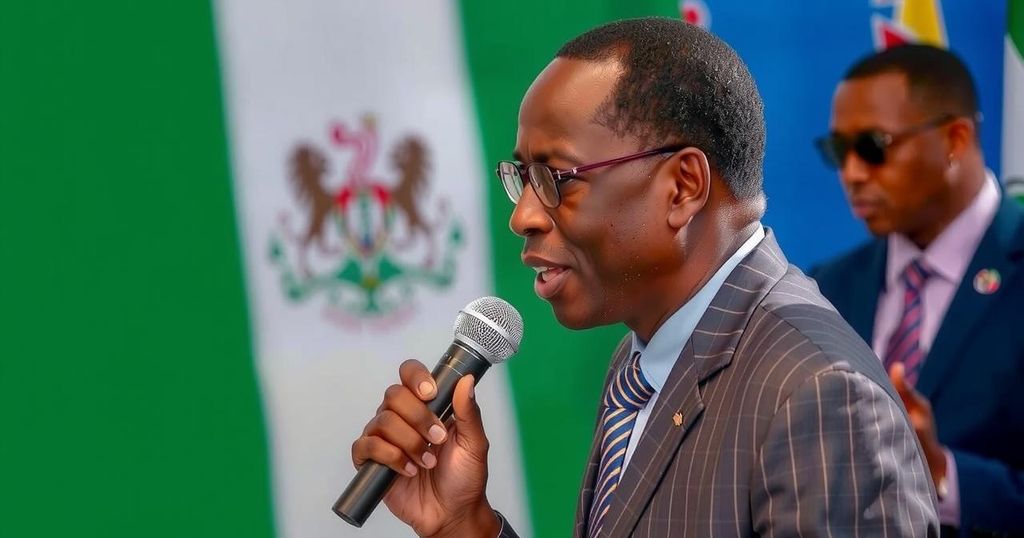Senegal Concludes Tense Campaign Ahead of Critical Legislative Elections

Senegal’s tense electoral campaign concludes ahead of vital legislative elections that will impact President Bassirou Diomaye Faye’s reform agenda. Violence marked the campaign, with confrontations between party supporters. The elections follow significant political unrest and a context of recent imprisonments of key political figures, raising concerns about the stability of Senegal’s democracy.
Senegal has concluded a tense electoral campaign in the lead-up to a critical legislative election scheduled for this weekend. The election will determine the composition of the 165-member assembly, where President Bassirou Diomaye Faye’s party currently lacks a majority. Elected in March on an anti-establishment platform, President Faye has claimed that his inability to implement key reforms, such as combating corruption and securing a larger share of natural resources for the populace, is due to parliamentary opposition. In September, in a strategic move, President Faye dissolved the opposition-led parliament, prompting a snap election. His main challenger is the Takku Wallu opposition coalition, headed by former President Macky Sall. The campaign period has witnessed sporadic violence among rival party supporters, including destructive attacks in the capital, Dakar, where an opposition party’s headquarters was set ablaze. Ousmane Sonko, a prominent opposition leader and former prime minister, has condemned the violence against his party, PASTEF, urging his supporters to remain calm after initially calling for retaliation against their attackers. Recently, he faced an assault during a campaign stop, which resulted in injuries to members of his team. The upcoming election is a significant test of Senegal’s democratic stability amid recent regional unrest. The context of the presidential elections earlier this year raised questions about Senegal’s democratic integrity, especially amid allegations of political repression when both President Faye and Mr. Sonko were imprisoned for political reasons just before the vote. The actions sparked national protests, reflecting widespread anxiety over the state’s political trajectory.
The ongoing legislative elections in Senegal are set against a backdrop of political tension and previous unrest. Following the March presidential elections, where both President Faye and opposition leader Ousmane Sonko were granted amnesty after political imprisonment, the political environment has been fraught with agitation. The dissolution of parliament and the subsequent call for elections underscore the challenges that the Faye administration faces in pursuing its reform agenda amid a fractured political landscape.
In summary, Senegal’s imminent legislative elections represent a pivotal moment for the country, determining whether President Bassirou Diomaye Faye can garner the parliamentary support necessary to enact his reform agenda. The violence and political conflicts observed during the campaign period epitomize the challenges facing Senegal’s democracy, emphasizing the need for peaceful discourse and political reconciliation to sustain stability in the region.
Original Source: apnews.com








